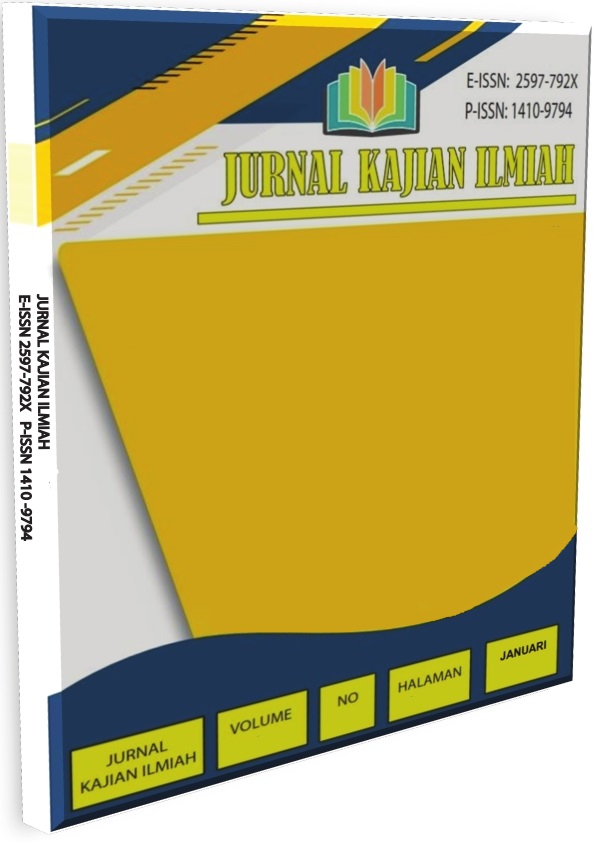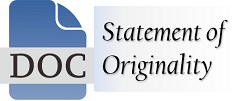Efektivitas Pembelajaran Jarak Jauh Dalam Perspektif Mahasiswa
DOI:
https://doi.org/10.31599/jxthv689Keywords:
Covid-19, Distance Learning, Learning EffectivenessAbstract
This research was conducted to determine the effectiveness of distance learning from the perspective of students such as the material provided by the lecturer, understanding of the material, obstacles in participating in distance learning, and the learning model carried out. This study uses a descriptive survey method, the research sample is students from Bhayangkara University, Jakarta Jaya (Ubhara Jaya). Data collection techniques using a questionnaire. The findings in this study, 64.1% of students disagree with distance learning, according to students distance learning is not effective in the teaching and learning process, and 35.9% agree. Those who agree with distance learning generally state that this is a way to stop the spread of Covid 19. When asked about the understanding of the lecture material delivered by the lecturer through distance learning, 72.5 students found it difficult because the question-and-answer process was less effective. Constraints experienced by students during distance learning, 43.1% were caused by unstable signals, 37.7% answered that there were no problems, and 19.2% answered that they sometimes experienced signal disturbances. Regarding student spending during distance learning, 43.8% said they were not more efficient than offline lectures, 41.1% said there were savings.
Downloads
References
Abi Yodha, S., Abidin, Z., & Adi, E. P. (2019). Persepsi Mahasiswa Terhadap Pelaksanaan E-learning Dalam Mata Kuliah Manajemen Sistem Informasi Mahasiswa Jurusan Teknologi Pendidikan Universitas Negeri Malang. Jurnal Kajian Teknologi Pendidikan, 2(3), 181–187.
Darmayanti, T., Setiani, M. Y., & Oetojo, B. (2007). E-learning Pada Pendidikan Jarak Jauh: Konsep Yang Mengubah Metode Pembelajaran di Perguruan Tinggi di Indonesia. Jurnal Pendidikan Terbuka Dan Jarak Jauh, 8(2), 99–113.
Hikmat, H., Hermawan, E., Aldim, A., & Irwandi, I. (2020). Efektivitas Pembelajaran Daring Selama Masa Pandemi Covid-19: Sebuah Survey Online. LP2M.
Kemenkes Rl. (2021). Situasi Terkini Perkembangan Coronavirus Disease (COVID-19). Kemenkes, 1–4. https://covid19.kemkes.go.id/download/Situasi_Terkini_050520. (Diunduh 3 Oktober 2021)
Leidner, D. E., & Jarvenpaa, S. L. (1993). The information age confronts education: Case studies on electronic classrooms. Information Systems Research, 4(1), 24–54.
Miarso, Y. (2004). Menyemai Benih Teknologi Pendidikan. Kencana.
Moleong, L. J. (2011). Metodologi Penelitian Kualitatif, cetakan XXIX. Bandung: PT. Remaja, Rosdakarya.
Notoatmodjo, S. (2010). Metodologi Penelitian Kesehatan Notoatmodjo S, editor. Jakarta: PT. Rineka Cipta.
Nurmukhametov, N., Temirova, A., & Bekzhanova, T. (2015). The Problems of Development of Distance Education in Kazakhstan. Procedia-Social and Behavioral Sciences, 182, 15–19.
Pengelola web kemdikbud. (2020). SE Mendikbud BOS.
Pengelola web Kemdikbud. (2020). Kemendikbud Terbitkan Pedoman Penyelenggaraan Belajar dari Rumah. In Jakarta, 28 Mei 2020.
Pulungan, R., br Ginting, L. S. D., & Nasution, A. S. (2021). Kelebihan Dan Kekurangan E-Learning Berdasarkan Pengalaman Mahasiswa Umn Al Washliyah. Prosiding Seminar Nasional Hasil Penelitian, 4(1), 504–507.
Rohmawati, A. (2015). Efektivitas Pembelajaran. Jurnal Pendidikan Usia Dini, 9(1), 15–32.
Sagita, M., & Nisa, K. (2019). Pemanfaatan E-learning Bagi Para Pendidik Di Era Digital 4.0. Jurnal Sosial Humaniora Sigli, 2(2), 35–41.
Semradova, I., & Hubackova, S. (2016). Teacher Responsibility in Distance Education. Procedia-Social and Behavioral Sciences, 217, 544–550.
Uno, H. B. (2007). Model pembelajaran menciptakan proses belajar mengajar yang kreatif dan efektif. Jakarta: Bumi Aksara.
Yerusalem, M. R., Rochim, A. F., & Martono, K. T. (2015). Desain dan Implementasi Sistem Pembelajaran Jarak Jauh Di Program Studi Sistem Komputer. Jurnal Teknologi Dan Sistem Komputer, 3(4), 481–492.
Yudhana, A. S. L., & Kusuma, W. A. (2021). Kelebihan dan Kekurangan Pembelajaran Jarak Jauh Atau E-Learning dan Learning Management System (LMS) Menggunkan Pendekatan Literature Review, dan User Persona. Jurnal Syntax Admiration, 2(9), 1617–1628.
Yuliana, Y. (2020). Analisis Keefektivitasan Pemanfaatan E-learning Sebagai Media Pembelajaran Pendidikan Agama Islam Pada Masa Pandemi Corona (Covid-19). SALAM: Jurnal Sosial Dan Budaya Syar-I, 7(10), 875–894.












_-_Copy1.jpg)




